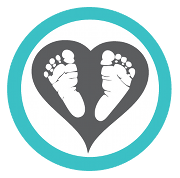According to an article in the Deseret News, women who give birth in their 40s and 50s tend to live longer. So, if you are having a baby later in life and are worried that you may not live long enough to raise the child, perhaps there is a protective factor in your hereditary makeup that goes along with the longer fertility. The fact that the brothers of women who have children later in life also live longer suggests genetic, rather than environmental factors.
Perhaps the rate of aging is retarded overall, affecting not only the reproductive organs, but other vital cells as well.
This does not mean you should try to prolong your life by having a baby at age 49, but if menopause seems to be delayed for you, there may be a silver lining that goes with it. (Click the post title to read the report)
 A ray of sunshine in the storm of tragedy
A ray of sunshine in the storm of tragedyOther news: Alaska has joined the list of states that now will issues Certificates of Birth to mothers of stillborn babies. Governor Palin signed the Bill on May 1st. Though Alaska has only about 50 stillbirths a year it is important to every one of those mothers who suffered the tragic loss.
Utah was the second state to sign on, giving parents these certificates, which help the grieving parents deal with their loss by validating the reality of their tragedy. Death certificates have been required for a very long time, but the question remained, "how can you have a death without a birth?" and the short life of their baby in the womb seemed unrecognized. These certificates are important in the healing process. The M.I.S.S. Foundation works to encourage legislation to support the parents in their loss. The M.I.S.S. Foundation believes that all states should record births as births... whether live or still. Click on the underlined name here to see how the other states stand on this issue and the progress that has been made.
As the mother of a full-term, stillborn baby, I can attest to the importance of this kind of recognition, which was not available when I delivered. If you or someone close to you has experienced this kind of loss, you will appreciate what the foundation is doing.
What can I do?
By way of reminder of what can be done to prevent stillbirth - take good care of yourself, attend your prenatal appointments, eat right, gain weight appropriately, be screened for gestational diabetes (take it seriously if you do develop it) and monitor your baby's movements starting around 26 weeks. Most stillbirths are unexplained but there is a higher rate among obese mothers and those with diabetes, so exercising and careful attention to diet can help reduce your risk. Fortunately, most babies are born healthy, so don't worry excessively while you are pregnant. We don't want the stress hormones to get out of control either!





















No comments:
Post a Comment
This blog only reviews comments before posting to avoid hijacking. We will respond to comments Mon-Thurs but we are closed Fri-Sun and legal holidays.